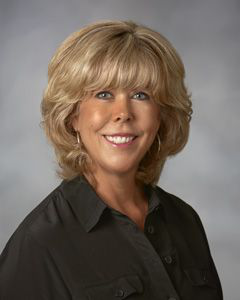Students enrolled at the thirteen institutions within Colorado’s Community College System (CCCS) will save millions annually as the colleges continue to invest in open educational resources (OER) that spare students the burden of purchasing expensive textbooks or course materials.
Due to a recent $163,000 grant from the Colorado Commission on Higher Education, several CCCS colleges will begin expanding and implementing OER projects that aim to foster educational equity, improve student retention, completion and success and make students’ education affordable. CCCS’ grant from the commission is part of a wider $550,000 investment in OER throughout the state.
“Here at Pikes Peak, we’re very mindful about what is happening with our students. They’re having to bear the brunt of paying these outrageous textbook prices from publishers,” said Marc Nash, Open Educational Resource specialist/coordinator at Pikes Peak Community College (PPCC). “The students very much want us to explore these options, so it’s really great to be able to help them out with this.”
Schools received OER funding in the form of institutional, “small group” or travel grants. PPCC joins Arapahoe Community College, the Community College of Denver, Red Rocks Community College and others as recipients of an institutional award to support large-scale OER initiatives.
Other institutions such as Northeastern Junior College and Trinidad State Junior College will use their designated travel grant funding to attend the inaugural OER Convening and Open Textbook Network (OTN) Training in May this year.
In a news release, CCCS Chancellor Joe Garcia said the system is committed to improving college access and affordability for all Coloradans.
“The growing use of OER for both online and face-to-face learning improves our ability to reduce one of the greatest financial barriers to higher education,” Garcia said.
PPCC’s $40,000 grant will be used to develop roughly 20 OER courses for fall 2019, Nash said. The initiative will build on existing OER work, particularly the use of OER for all course sections in sociology, anthropology, college composition and reading last fall.
“We ended up saving students about a quarter of a million dollars just from that one semester from those four classes,” Nash said, adding that the school will soon move more curriculum to OER for courses in economics, geography, biology and communications and public speaking. “We’re definitely expanding our efforts. It’s getting to the point where it’s becoming part of the culture here at Pikes Peak Community College.”
Developing OER is an initiative that PPCC officials wanted to be faculty-driven in order to give faculty members agency over the curriculum taught in their classrooms, Nash said, adding, “We’re finding if we just talk to them about OER and show them the benefits and give them the support they need, they’re gung-ho about it. They’re ready to go.”
Similarly, Jennifer Ferguson, the interim director of the Teaching Learning Center & Online Learning at the Community College of Denver (CCD), said developing OER for courses has been at the forefront of many faculty members’ minds.
CCD will be using its $20,000 OER grant to develop three OER courses – Art Appreciation, Public Speaking and the revision of an existing OER Legal Environment of Business course.
“The work is being done mostly by the content area experts,” Ferguson said. Her center’s role will be to support OER course accessibility and instructional design.
CCD has previously built OER into some courses, but because the initiative is in its early stages, college officials have not yet assessed OER’s impact with data, Ferguson said. But preliminary outcomes indicate that student performance, assessment and grades have improved and that students, particularly in Art History for instance, will be able to access their course text as opposed to not purchasing their required textbooks at all.
“We want to save the students money,” Ferguson said. “We want to ensure that the cost of textbooks is no longer a barrier to students getting the education that they desire.”
 Lisa Chestnut
Lisa Chestnut
Additional goals for OER initiatives at CCD are to improve retention rates and increase students’ course loads to accelerate their time to degree. Offering OER at little to no cost will be a priority especially because students may feel that they have to choose less courses due to textbook expenses, which can be “prohibitive” to their progress and success, Ferguson said.
Fostering educational equity and student success will be the goal for OER initiatives in progress at Arapahoe Community College (ACC). Over the next year, ACC’s $13,000 award will support faculty in four areas as they develop OER materials for their students.
The courses chosen include English 121, Economics 202, Physics 105 and Communications 115.
“We picked those four because they were high enrollment, guaranteed-transfer classes that used expensive textbooks, so that’s why those four were identified for the first phase of the OER grant,” said Lisa Chestnut, director of the Arapahoe Community College Library & Learning Commons.
The college will have a professional development day on April 2 for faculty and others to gain experience developing OER. There will be a session titled “OER For Beginners and Beyond,” Chestnut said, and the school will bring in Scottsdale Community College’s Dr. Lisa Young to speak about OER and how to adapt and use these resources in class and the benefits to the students.
In addition to making access to course materials equitable, sustaining the accessibility of OER materials and customizing and tailoring the material to meet students’ circumstances will be key for ACC officials.
“The goal is to just help the student to be successful by having the material at a low or no cost to them,” Chestnut said. “We appreciate the Colorado Department of Higher Education providing this grant to us. It definitely has helped us to initiate this program on campus.”
Tiffany Pennamon can be reached at [email protected]. You can follow her on Twitter @tiffanypennamon.
This article first appeared in Diverse: Issues In Higher Education.









